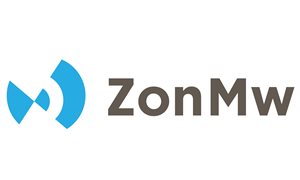7 March 2018
The translation between bench to the bedside requires the involvement of different expert research groups in drug early discovery, biomarkers, formulation, pharmacology, etc. that already collaborate in Europe within the already existing research infrastructures. But the problem is that they do not are specifically dedicated to research in children.The time needed for the development of new medicines is also an important concern. It is long, from the basic research (before the study of a potential treatment with humans) to the clinical research (when we study this potential treatment with patients). It can also take among 7-10 years from the screening of new molecules to the market of a new drug and the average of success rate is really low (1 over 10.000 molecules studied). For this reason, it's essential to join efforts and work in a collaborative way between the European experts groups that at this moment are working to develop paediatric medicines.
ID-EPTRI is a project funded by the European Commission that has as main objective to design the framework for the European Paediatric Translational Research Infrastructure (EPTRI). A research infrastructure is a set of facilities, resources and related services at disposal of the scientific community to conduct top-level research. EPTRI will be a new research infrastructure that will integrate the paediatric expertise of five different areas of pre-clinical research: early discovery and preclinical studies, biomarkers, pharmacology, formulation and underpinning paediatric studies. The main objective of ID-EPTRI is to facilitate the paediatric pre-clinical research while reducing the time of its translation to the clinical phase.
The project involves 26 partners from EU and non-EU countries including already existing research infrastructures, top-level universities, scientific and clinical centers of excellence in Europe. It is coordinated by Consorzio per Valutazioni Biologiche e Farmacologiche (CVBF), a not-for-profit organization, founded in 2000 with the mission to perform research and provide scientific, economic and regulatory consultancy for innovation in the health sector at European level.
Saskia de Wildt, project leader, is member of the theme Renal disorders.
Project: https://www.cvbf.net/eptri/
 Saskia de Wildt and colleagues, theme Renal disorders, obtained an EU Horizon 2020 grant of € 123.000 for a new research infrastructure that will facilitate the future development of better paediatric medicines.
Saskia de Wildt and colleagues, theme Renal disorders, obtained an EU Horizon 2020 grant of € 123.000 for a new research infrastructure that will facilitate the future development of better paediatric medicines.
The translation between bench to the bedside requires the involvement of different expert research groups in drug early discovery, biomarkers, formulation, pharmacology, etc. that already collaborate in Europe within the already existing research infrastructures. But the problem is that they do not are specifically dedicated to research in children.The time needed for the development of new medicines is also an important concern. It is long, from the basic research (before the study of a potential treatment with humans) to the clinical research (when we study this potential treatment with patients). It can also take among 7-10 years from the screening of new molecules to the market of a new drug and the average of success rate is really low (1 over 10.000 molecules studied). For this reason, it's essential to join efforts and work in a collaborative way between the European experts groups that at this moment are working to develop paediatric medicines.
ID-EPTRI is a project funded by the European Commission that has as main objective to design the framework for the European Paediatric Translational Research Infrastructure (EPTRI). A research infrastructure is a set of facilities, resources and related services at disposal of the scientific community to conduct top-level research. EPTRI will be a new research infrastructure that will integrate the paediatric expertise of five different areas of pre-clinical research: early discovery and preclinical studies, biomarkers, pharmacology, formulation and underpinning paediatric studies. The main objective of ID-EPTRI is to facilitate the paediatric pre-clinical research while reducing the time of its translation to the clinical phase.
The project involves 26 partners from EU and non-EU countries including already existing research infrastructures, top-level universities, scientific and clinical centers of excellence in Europe. It is coordinated by Consorzio per Valutazioni Biologiche e Farmacologiche (CVBF), a not-for-profit organization, founded in 2000 with the mission to perform research and provide scientific, economic and regulatory consultancy for innovation in the health sector at European level.
Saskia de Wildt, project leader, is member of the theme Renal disorders.
Project: https://www.cvbf.net/eptri/
Related news items

Grants for heart and kidney research Two awards to Radboudumc in Open Competition ENW-XS
21 July 2022Two researchers from the Radboudumc receive a grant from the NWO within the Open Competition of the Exact and Natural Sciences. They are Thijs Eijsvogels, who studies the heart, and Pieter Leermakers, who studies the kidneys.
go to page
1.4 million euro to reduce hospital admissions due to medication
7 January 2022 A team of sixteen Dutch hospitals received a grant of 1.4 million euros from ZonMw. They will investigate whether they can reduce medication related hospital readmissions. go to page
Consortium grant Dutch Kidney Foundation for ArtDECO consortium
8 September 2021 The Dutch Kidney Foundation awarded a consortium grant of 1.5M euros to the ArtDECO consortium, >400K euros of which will be allocated to the Radboudumc and more specifically to the AGORA data- and biobank. go to page
ZonMw grants to study optimal use of COVID-19 vaccines in patients with impaired immune systems
3 February 2021 How do people with reduced immunity, especially kidney patients, react to a COVID-19 vaccination? And how can patients with peripheral arterial disease be helped by DNA testing? Our researchers received grants from ZonMw to make these studies possible. go to page
Transfer of new anti-hepatitis C drugs across the human placenta
9 September 2020 In a recent publication in American Journal of Obstetrics and Gynecology, researchers from the Departments of Pharmacology and Toxicology, Pharmacy, Obstetrics and Gynecology, Gastroenterology and Hepatology, investigated the placental passage of two such drugs for the first time. go to page
